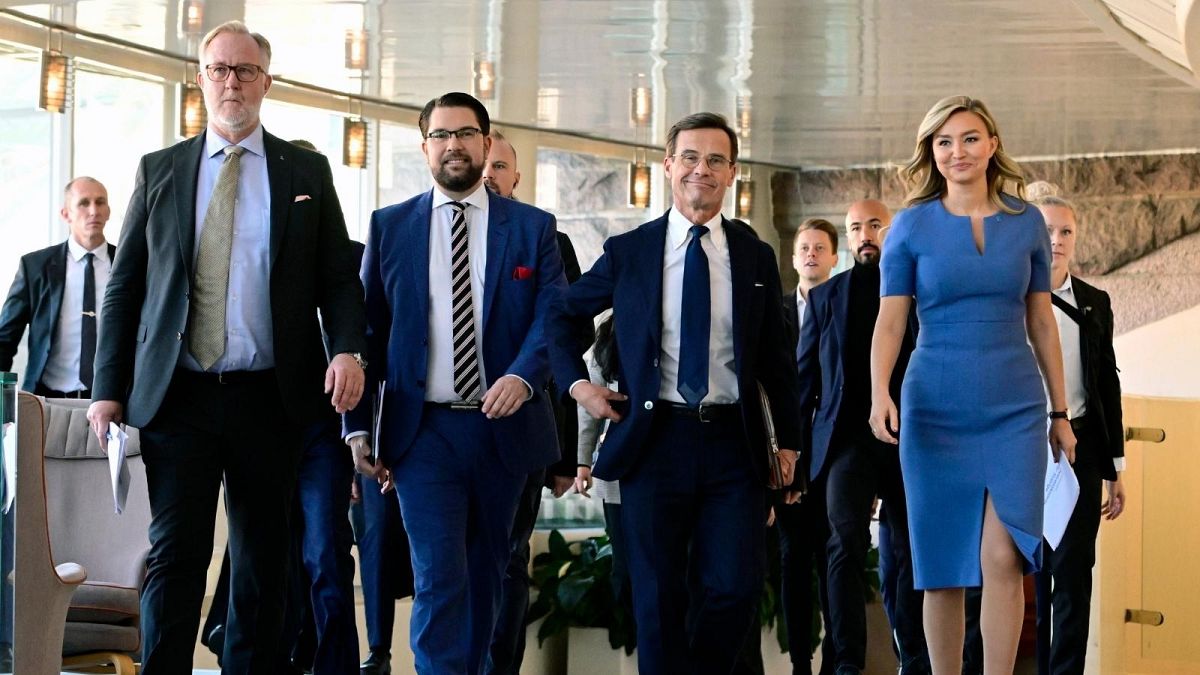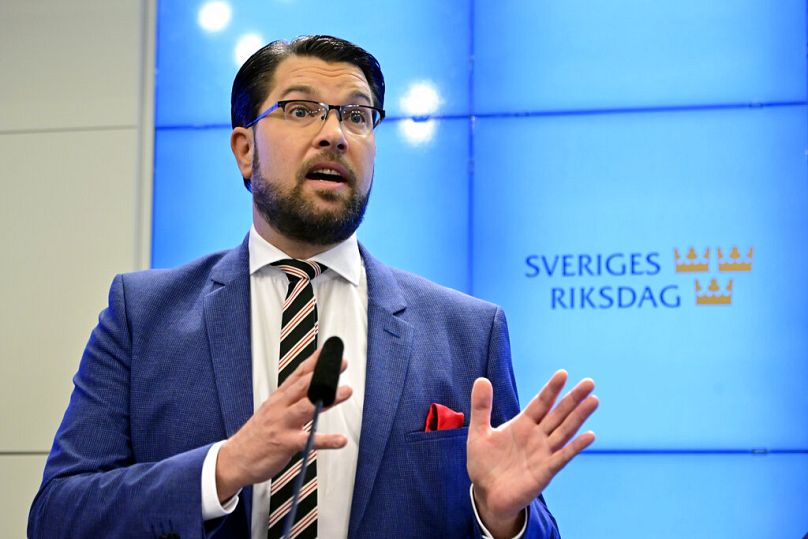Sweden's likely next prime minister, Ulf Kristersson, will formally be sworn in with the king in parliament on Monday.
The next government of Sweden will be a coalition of three right-wing political parties, with support from the far-right.
Ulf Kristersson, the Nordic nation's likely next prime minister, announced that his Moderate party would be joined by the Christian Democrats and Liberals in a formal coalition.
The far-right Sweden Democrats, the biggest opposition party, will not be an official member of the government but the four parties will, together, pursue a unified government policy which means Kristersson will have to rely on the Sweden Democrats to govern effectively.
"This mandate makes us feel that change is not only necessary but also possible," Kristersson, 58, told reporters, cautioning that Sweden's problems are so big, they would take time to fix.
The deal signed between the four parties is called the "Tidö Agreement", after the castle where the negotiations took place, and Kristersson said the agreement was based on the parties seeing similar problems, and coming up with joint solutions for how to tackle them.
What policy goals have been unveiled so far?
Kristersson said on Friday that when the new government takes office, there should be a budget that creates stability for Sweden. He also wants benefits reform that "means it never pays better to live on benefits than to work".
He said there would be more of a focus on foreigners learning Swedish so they can get into the job market, cuts to international aid, lower fuel prices and protection against soaring energy costs.
Meanwhile, the leader of the Sweden Democrats, Jimmie Åkesson, said he would like to have been part of a majority government, but that his party will have extensive political influence, and have secured concessions from the other parties in return for their support outside the coalition.
"We must deliver politically and especially in areas that our voters think are particularly important," Åkesson said.
Some of these areas include reform of the criminal justice to introduce tougher sentences for repeat offenders, among other reforms, and lowering the number of quota refugees Sweden is willing to accept each year.
The leader of the Liberals, Johan Pehrson, said his party had to compromise its positions during the month-long negotiations since the election on 11 September, but that his party is united behind the deal.
The Liberals had baulked at the idea of being in a formal coalition with the Sweden Democrats, but having them outside the government seems to have placated his members.
In terms of policy areas, Pehrson spoke on Friday about the importance of education, and the need for freedom of the media and independence of the judiciary, as well as securing continued abortion rights for women.
Ebba Busch, the leader of the Christian Democrats, says the new coalition has a mandate to make "the healthcare reform of the century," and wants to invest in a new national healthcare agency as well as improved care home facilities.
"I am happy that our partner parties have reached an agreement on how Sweden can be governed," Busch wrote on Twitter.
"These are troubled times in our world and also here at home, but difficult problems are best solved together. This means a new start for Sweden. We are ready."
What has some of the early reaction been to the new government?
There has already been some political reaction to the announcement of Kristersson's rightwing "3+1" government and its broad policy agenda.
Swedish Green MP Per Boland decried a lack of a mention of the climate crisis when Kristersson outlined some of the biggest problems the country was facing and criticised the deal.
"The agreement will be a heavy burden for a colder and more insecure Sweden," said Bolad, saying it would increase child poverty, create insecurity and build walls between people.
"What we get is a death blow for the climate, and a death blow for Sweden's voice in the world," he wrote on Twitter.
Meanwhile, on the Swedish stock market, shares in an independent school group fell 9.5% when the new government announced a policy proposal to ban fee-paying schools from making too much profit.

